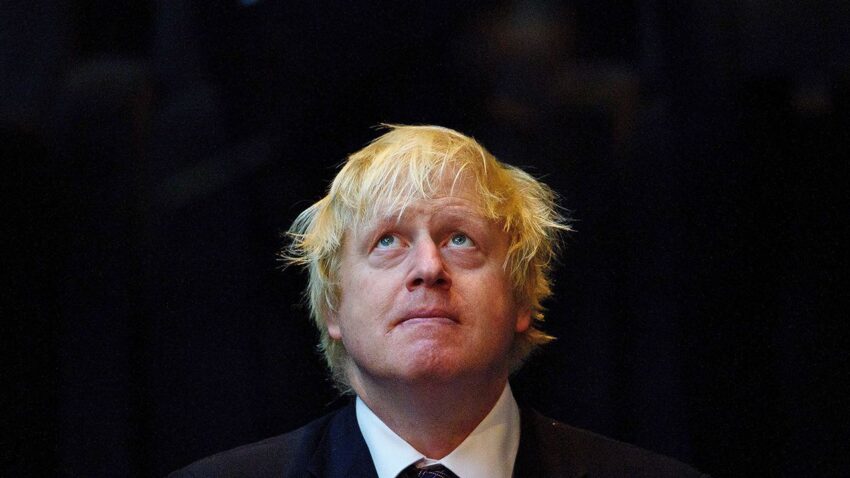In the ever-evolving landscape of political memoirs, few have generated as much buzz as Boris Johnson’s recent release.
However, what many expected to be a thrilling insider’s account of his time as Prime Minister has, quite surprisingly, turned into a commercial flop.
For those intrigued by the complexities of the British political scene or simply curious about Johnson himself, this turn of events raises some eyebrows.
So, what went wrong?
To dissect this unexpected outcome, we turn to James O’Brien, a well-respected broadcaster and journalist known for his sharp commentary on political affairs.
During a recent episode of his radio show, O’Brien did not hold back as he expressed his views on the lackluster sales of Johnson’s memoir.
Initially, there was considerable anticipation surrounding the book, with many hoping it would be filled with juicy anecdotes and revealing insights from Johnson’s controversial tenure.
Yet, as O’Brien pointed out, the reality was far from the expectations.
O’Brien speculated that the public’s enthusiasm for Johnson’s personal narrative may have dwindled over time.
After all, his time in office was riddled with scandals and controversies, leading many to feel they had heard enough about his escapades.
Why would readers want to revisit a narrative they felt they already knew so well?
This fatigue could very well be a significant factor in the memoir’s poor reception.
Moreover, O’Brien criticized the memoir for its lack of depth and introspection.
Instead of offering readers a reflective look at his political journey, Johnson’s book came across as more of a self-serving account.
The absence of new revelations or meaningful reflections left many feeling unsatisfied.
It seems that readers were searching for something more profound, but what they got was a narrative that failed to resonate.
The writing style itself also drew O’Brien’s ire.
He described it as uninspired and dull, lacking the engaging quality that one would expect from a former Prime Minister.
When a political figure is known for their charisma, one would hope that charm would translate into compelling writing.
Unfortunately, this wasn’t the case with Johnson’s memoir, leaving readers feeling disconnected.
In addition to the book’s content, O’Brien explored the broader context of political memoirs in today’s literary market.
With an influx of former leaders sharing their stories, standing out in such a saturated field is no easy feat.
Johnson’s memoir, unfortunately, did not rise to the occasion, failing to capture the public’s imagination amid a sea of competing narratives.
Marketing strategies also played a crucial role in the memoir’s disappointing performance.
Despite significant investment in promotional efforts, the book failed to generate the anticipated excitement.
O’Brien suggested that there may have been a misalignment between the marketing campaign and the actual content of the memoir, leading potential readers to feel let down by the disparity.
Public perception, particularly of Boris Johnson, further complicated the memoir’s reception.
As a polarizing figure, Johnson has both fervent supporters and staunch critics.
O’Brien argued that this division likely impacted sales; admirers may have been put off by the book’s lack of substance, while detractors were unlikely to pick up a memoir from someone they fundamentally oppose.
In typical O’Brien fashion, humor punctuated his critique.
He highlighted the irony of a politician renowned for his public speaking skills struggling to craft a captivating written narrative.
This observation underscores the difference between engaging an audience in person and holding their attention through the written word.
As the discussion unfolded on his show, O’Brien invited listeners to share their thoughts on the memoir, leading to a lively exchange of opinions.
Responses varied widely, showcasing the diverse perspectives that exist regarding political figures and their attempts at literary expression.
James O’Brien’s analysis of Boris Johnson’s memoir offers a thought-provoking look into why the book fell short of expectations.
His insights illuminate the many factors contributing to its lack of success, from the content and writing style to marketing strategies and public sentiment.
This situation serves as a reminder of the challenges facing political memoirs in today’s competitive literary environment, where captivating narratives are essential for success.
Stay tuned for more engaging discussions and analyses on the intersection of politics and literature, as the world continues to watch the unfolding stories that shape our lives.
